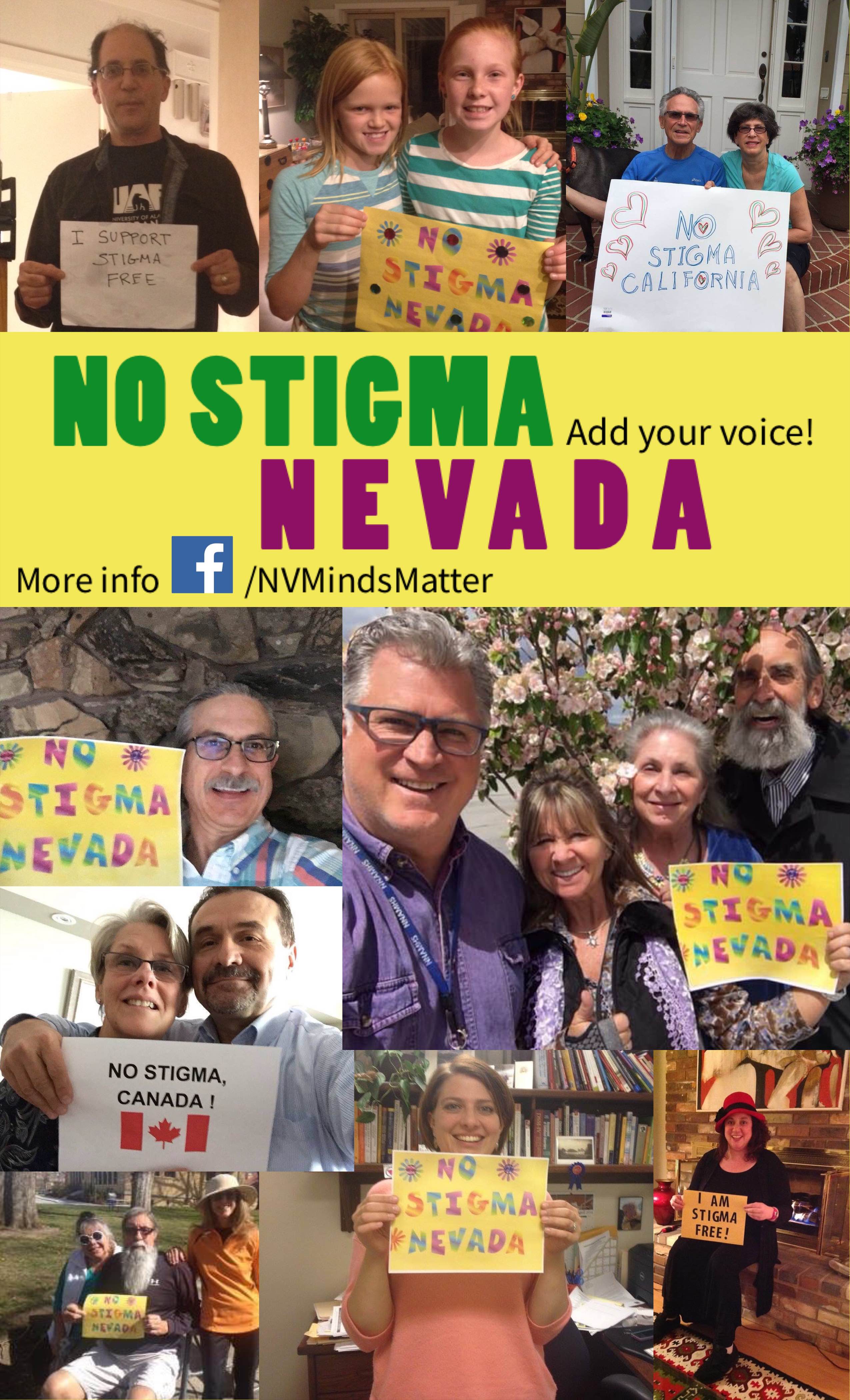MHM2016-Stories
Several people from around Nevada shared their personal stories of battling mental illness for public service announcements that will play on radio statewide. You can hear them speak and read their stories below.
Kim Palchikoff - Reno
My name is Kim Palchikoff. I am a weekly mental health columnist for the Las Vegas Sun. But I don’t just write about stories of other people. I also live with bipolar disorder myself.
Like living with any long-term illness, it can be frustrating. Often it can be difficult to work full time because stress can exacerbate symptoms and employers don’t always understand.
But I never give up. For a long time I kept my illness a secret, but when I finally told friends and family, no one really cared. All they wanted to do was help. People are human, and everyone has felt the same ups and downs at some point in their life. We just feel them more often.
For six years I was a patient at Northern Nevada Adult Mental Health Services, a state clinic for low-income patients. I wasn’t embarrassed. I was grateful. They were kind and patient.
Many people don't understand mental illness. They think it's all bad. It's not. Many people like me are just different, often quirky, funny, creative folks and we are invaluable contributors to Nevada’s arts scene. We are proud musicians, journalists, writers, producers and directors.
My advice to others is simple: It’s important to focus on the positives, get help, and love yourself for who you are.
Christina Lang - Las Vegas
Christina Lang came to Southern Nevada Adult Mental Health Services (SNAMHS) in 2007 with a bipolar diagnosis. She was an employed student who, due to decrease in work hours, became homeless in 2009 and started living in her car and showering at the local athletic club. She had run-ins with the law on different occasions. Christina began to participate in dialectical behavior therapy (DBT) group and did not disclose that she was homeless for more than a year. Once disclosed she received a case manager and shelter plus housing. Christina tried working but she also had medical issues of ongoing seizures and a dislocated shoulder that prevented her from keeping a job. She had surgery on her shoulder and was determined by the doctor to be medically disabled due to the seizures and her bipolar diagnosis. Christina and her case manager struggled with Social Security for several years, being denied twice. Christina never gave up and finally was approved to receive her benefits in March 2016. Christina volunteers with SNAMHS on a regular basis helping out with the Las Vegas Metro Police Department’s Children in Transition (CIT) program speaking to officers about her story. Christina also assists in the consumer assistance program by doing computer searches for resources for other individuals. Christina is living proof that mental health programs do help people improve their quality of life.
Denise Everett - Reno
I started my serious drinking career in high school at age 16. However, I was raised in a home where there was a lot of alcoholic behavior and I think I had my first taste of liquor around age 5. My parents had a cocktail party and the next morning when I got up, there were several half full glasses sitting around the living room that looked enticing so I tried a few. Many of them were sweet tasting so I drank quite a bit before my Dad caught me and cleaned up the debris. I remember feeling warm and fuzzy then falling asleep on the floor.
I drank heavily, if sporadically, and dabbled in a variety of drugs from the time I was a teenager until I was 33 and got into recovery through outpatient treatment in Reno. I was not physically addicted to alcohol but was definitely psychologically reliant on the effects. I thought it was the only way to relax, socialize and feel better. Unfortunately, I never knew when (or if) I would stop once I started no matter how often I drank with the firm intention of just having one or two drinks. My drinking impaired my ability to grow emotionally or even finish anything I began. I would also do things when I drank that I was ashamed and embarrassed about when I sobered up. It took losing a promotion at work, which was the straw that broke the camel’s back so to speak, to get me into counseling. I know now that I was using substances to cover up depression and anxiety.
Since that time, I finished college, earned a Master’s degree, became a licensed drug and alcohol counselor and a licensed marriage and family therapist. In my personal life, I married, had a child and have been drug and alcohol free for almost 30 years. If I had not stopped, I honestly believe I would be extremely ill, dead, incarcerated or living in a shelter. I have sobriety to thank for a life of integrity and honesty; a fulfilling career, a beautiful family and personal riches beyond my wildest dreams.
When I talked with my friends and family about going into treatment, some were surprised that I had a problem but many others said they were glad and had been worried about me and my behavior. It was initially difficult for me to do but I wanted to be honest and soon became proud of being in recovery and doing something proactive about my disorder. In the beginning it was hard to let go of the shame and grasp the idea that alcoholism/addiction is a disease and not a moral failing but over the years I have realized that it’s a brain disorder and need to do certain things (like not drink) to keep it in remission.
When I sought help, it was because I couldn’t figure out how I was going to stop drinking on my own even though I really wanted to because I couldn’t imagine a life without alcohol. I just knew I couldn’t keep going the way I was and have a decent quality of life. The drinking was taking more of my time, energy and money and overshadowing everything I did. I would tell anyone who is hesitant to seek help that maybe they should give themselves the gift of being alcohol and drug free long enough to be clear headed and conscious before making the decision whether or not to use again.

 Kim's social media campaign for 'No Stigma'
Kim's social media campaign for 'No Stigma'